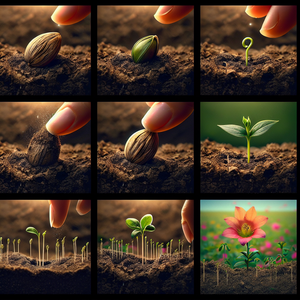From Passion to Profession: Turning Hobbies into Careers After 30

Deciding to leave a stable job to follow a passion can feel like a monumental risk, especially for those who have invested years in their careers. However, many find that their hobbies can evolve into not just a source of joy, but also a sustainable career. Take the story of Sarah, for example. She was a corporate marketing manager who spent her weekends immersed in painting. After consistently receiving positive feedback on her artwork, Sarah decided to take the plunge and sell her pieces online. Initially filled with doubt, she embraced the challenge, and within a year, her art business gained traction, allowing her to bid farewell to her corporate job. Her story exemplifies the courage it takes to venture into the unknown and the rewards that can come from such a leap of faith.
Identifying Transferable Skills
A crucial aspect of turning a hobby into a career is recognizing the transferable skills one possesses. Many individuals find that the abilities they honed in their previous jobs—be it communication, project management, or analytical thinking—can be directly applied to their new ventures. For instance, John, a former accountant, utilized his analytical skills to establish a financial consulting business tailored for artists and creatives. By leveraging his existing expertise, he carved out a niche market that not only fulfilled his passion but also provided a practical service. This ability to identify and apply transferable skills is essential for anyone looking to navigate a career transition successfully.
Creating a Plan and Setting Goals
Transitioning to a new career isn’t just about passion; it requires meticulous planning and goal-setting. Many successful individuals emphasize the importance of having a structured approach to this significant life change. Lisa, a software engineer who became a yoga instructor, is a prime example. She developed a comprehensive plan that included obtaining her teaching certification while still employed full-time. Lisa set specific goals, such as teaching a certain number of classes per week and establishing an online presence for her yoga brand. This strategic planning not only helped her stay organized but also provided clarity and purpose during her transition.
Building a Support System
Pursuing a new career path can often feel isolating, making it imperative to cultivate a robust support system. Encouragement from friends, family, and like-minded communities can be a game-changer. Mark, who transformed his passion for photography into a successful business, attributes much of his success to his supportive network. He joined local photography clubs and engaged in online forums, connecting with fellow photographers who offered invaluable feedback and encouragement. This sense of community not only helped him navigate challenges but also allowed him to celebrate milestones in his journey.
Embracing the Learning Curve
Transitioning from a hobby to a profession typically entails a steep learning curve. Embracing this journey and viewing challenges as growth opportunities are integral aspects of the process. Maria, a former teacher turned successful chef, faced numerous hurdles when launching her catering business. From sourcing ingredients to managing client expectations, she encountered a plethora of new skills to master. By attending culinary workshops and seeking mentorship from established chefs, Maria acquired the knowledge and confidence necessary to excel in her new career. Her experience underscores the importance of lifelong learning in any professional transition.
Transforming a hobby into a profession after the age of 30 is not just possible; it is increasingly becoming a fulfilling and rewarding path for many. While the journey may come with its share of challenges, the stories of individuals who have successfully made this leap serve as a testament to the idea that it is never too late to chase one’s dreams. By identifying transferable skills, creating a structured plan, fostering a supportive network, and embracing a mindset of continuous learning, anyone can take the plunge into a career that aligns with their passions. Whether you aspire to be an artist, chef, or entrepreneur, remember that your passion can indeed become your profession, and the journey toward that dream is a worthwhile endeavor that can lead to profound personal satisfaction and success.
Creative Entrepreneur
Independent artists, small businesses, online marketplaces (like Etsy or Shopify)
Core Responsibilities
Develop and market products or services based on personal passions (e.g., art, crafts, or photography).
Manage all aspects of the business, including finances, marketing, and customer relations.
Create a brand identity and maintain an online presence through social media and e-commerce platforms.
Required Skills
Strong entrepreneurial mindset with the ability to identify market opportunities.
Proficiency in digital marketing and social media management.
Basic financial literacy and budget management skills.
Yoga Instructor
Yoga studios, fitness centers, wellness retreats, and online fitness platforms
Core Responsibilities
Design and lead yoga classes tailored to varying skill levels and client needs.
Provide guidance on proper techniques and mindfulness practices to enhance physical and mental well-being.
Build a community around the practice, encouraging client retention and growth through workshops and special events.
Required Skills
Certification from a recognized yoga teacher training program.
Strong communication and motivational skills to engage students effectively.
Knowledge of anatomy and physiology related to yoga practices.
Freelance Photographer
Event planners, media companies, advertising agencies, or self-employed
Core Responsibilities
Capture high-quality images for various projects such as weddings, events, portraits, and commercial advertisements.
Edit and retouch photos to meet client specifications and enhance visual appeal.
Build a portfolio and network to attract potential clients and collaborations.
Required Skills
Proficiency in photography techniques and equipment (DSLR cameras, lighting setups).
Strong skills in photo editing software (e.g., Adobe Lightroom, Photoshop).
Business acumen to manage client contracts, pricing, and marketing.
Culinary Consultant
Restaurants, catering companies, food brands, and culinary schools
Core Responsibilities
Provide expert advice to restaurants, food brands, and culinary startups on menu development and food presentation.
Conduct cooking classes or workshops to share culinary techniques and trends with aspiring chefs and home cooks.
Stay updated on food industry trends to inform clients on best practices and innovations.
Required Skills
Formal culinary training or extensive experience in the food industry.
Strong communication and interpersonal skills to effectively convey concepts and ideas.
Creativity and innovation in menu design and food styling.
Financial Consultant for Creatives
Independent consultants, financial advisory firms, and creative agencies
Core Responsibilities
Offer financial planning and advisory services tailored specifically for artists, freelancers, and creative entrepreneurs.
Help clients manage budgets, plan for taxes, and make investment decisions regarding their artistic endeavors.
Conduct workshops and seminars on financial literacy for creatives.
Required Skills
Background in finance, accounting, or business administration.
Strong analytical skills to assess client financial situations and provide tailored advice.
Excellent communication skills to simplify complex financial concepts for clients.


